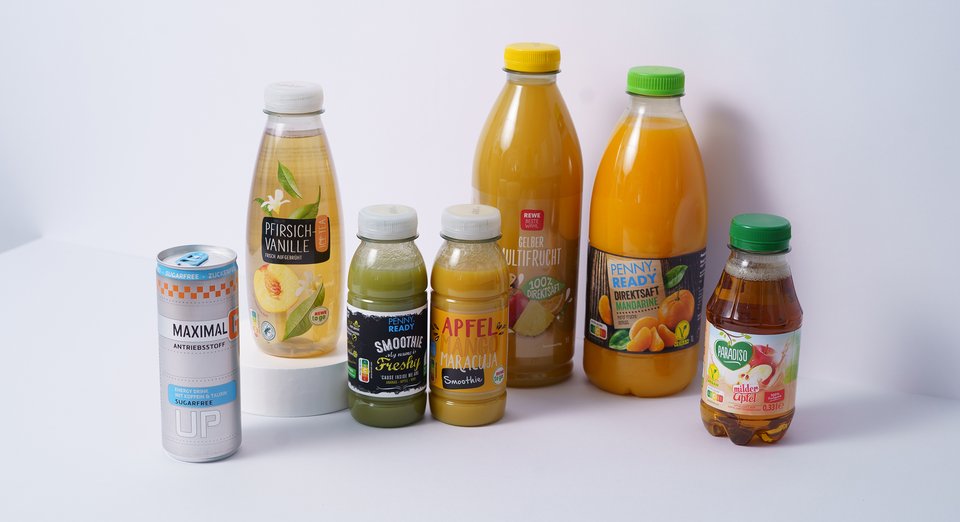
For 19 years, we have been paying the "deposit on cans" on beer, soft drinks and water in cans or plastic bottles, among other things. At the beginning of the year, the list of products subject to deposit was expanded - and made easier for consumers to understand.
Since 1 January 2022, single-use plastic drinks bottles and all drinks cans have been subject to a deposit. This means that a 25 cent deposit must now also be paid on previously deposit-free products such as juices, smoothies, iced coffee or Prosecco; with a transitional period until 1 July. An exception applies to dairy products until 2024.
For customers in the traditional drinks department, this also means an end to the question of whether or not a deposit has to be paid on a disposable bottle. The new regulation will also increase the amount of PET available for the recycling system, which in turn will reduce bottlenecks in the availability of PET material.
The changeover has already been completed in REWE Group's sales lines. Customers may only occasionally find plastic bottles without a deposit on less fast-moving products.
In total, the deposit on juices and co. means an additional volume of around 100 million bottles per year at the single-use deposit machines at REWE alone. Sounds like a lot, but it only accounts for around seven per cent of the volume of all single-use plastic deposit bottles returned. By way of comparison, 300 million "Ja!" and PENNY mineral water bottles are disposed of in single-use deposit machines every year.
